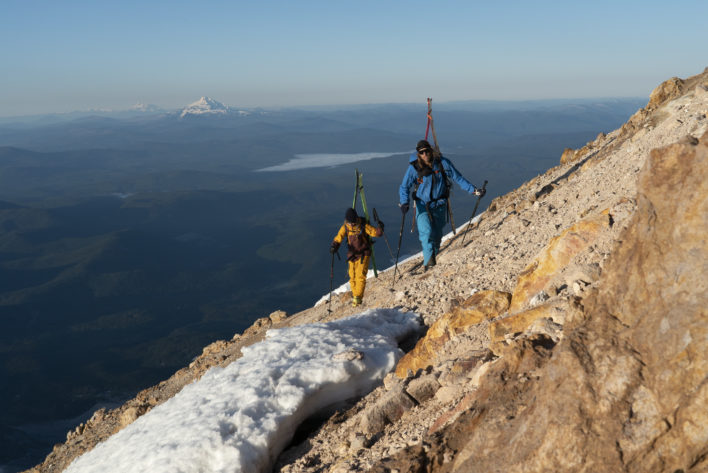
For the last two years, Cody Townsend has been on a mission to ski all 50 lines listed in the book Fifty Classic Ski Descents in North America. Then in March 2020, Covid-19 hit and states instituted stay-at-home orders and travel restrictions, and Townsend had to get creative in order to ski some of those lines before the snow melted. The Mountain Why, a film released December 2020, tells the story of how Townsend devised “a plan to travel safely, away from people.”
In an attempt to remain as isolated as possible, Townsend decided to bike over 1,000 miles from his house in Lake Tahoe, California, to ski lines on Oregon’s Mt. Hood as well as Mt. Rainier and Eldorado Peak in Washington. Childhood friend and fellow sufferfest-enthusiast Michelle Parker joined Townsend as his biking and ski partner. Meanwhile, Townsend’s main partner and cinematographer, Bjarne Salén, followed in his van, using drones and an eclectic bike to capture the journey.
Townsend and Parker left Tahoe on May 22 towing skis, climbing gear, tents, essential bike repair items and a days’ worth of food—all totaling approximately 100 pounds—behind their bikes. “We knew that we wanted to be kind of a moving quarantine, with as little exposure to other people or towns as possible,” Townsend explains. Salén was the only one who had contact with other people as he made quick stops for gas and the rare grocery store run.
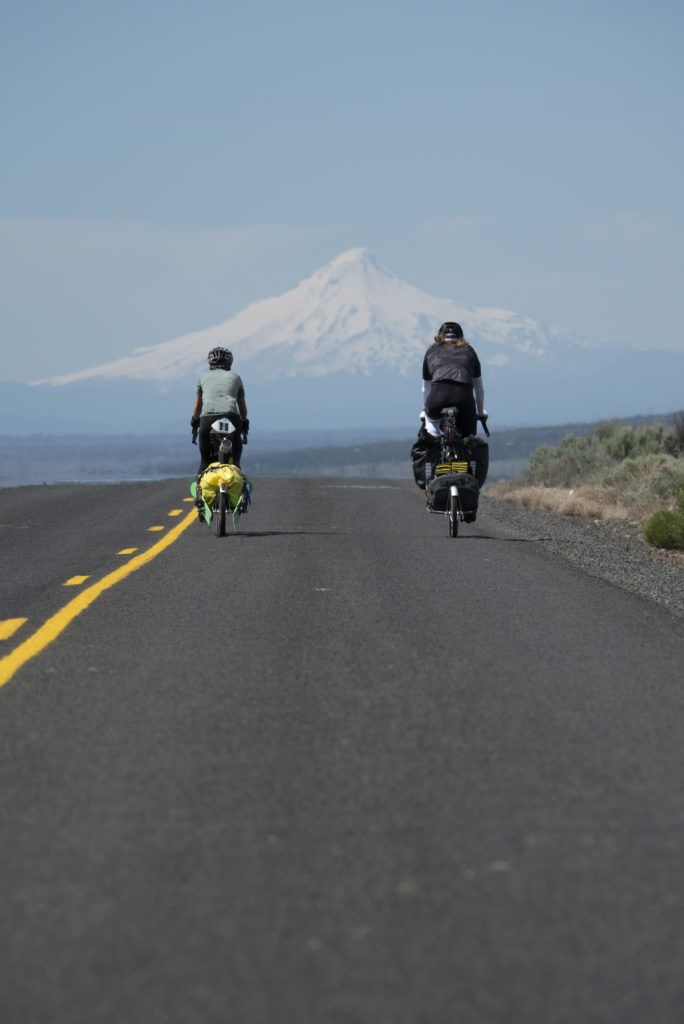
Parker notes that biking and camping was a “really pure” way to travel, saying, “For the most part, we were distanced and didn’t really see or socialize with anybody, which felt good at the time.” She further explains that biking miles of desolated backroads through the Pacific Northwest afforded them ample time for self-reflection, framed by both the pandemic and protests that took place across the country this spring and summer.
“We have just been climbing mountains all day,” Parker says breathily into her GoPro as they head toward Seattle, Wash. in the film. “Riding our bikes, propelling ourselves forward, it gives you a lot of time to think about everything that is going on right now…. Just kind of processing it all. And the best possible way that I know how, which is through exercise and being in nature, and even that feels like such a privilege…. I’m pissed. I’m sad. And I, I don’t know, I feel like everything we are doing right now is like, doesn’t stand for shit. It is a lot to think about on a long ride.”
Townsend also describes a similar sense of awareness, saying, “When we got into kind of rural Washington, you could see the tension, the anger. I could just feel people were exhausted and just over everything.” At times, that tension translated into hostility to the two bikers. “When we would ride through a little town and people were running us off the road, and we were getting yelled at, it really showed the condition—doing this when the world is in chaos—and it started to put things more in perspective,” he adds.
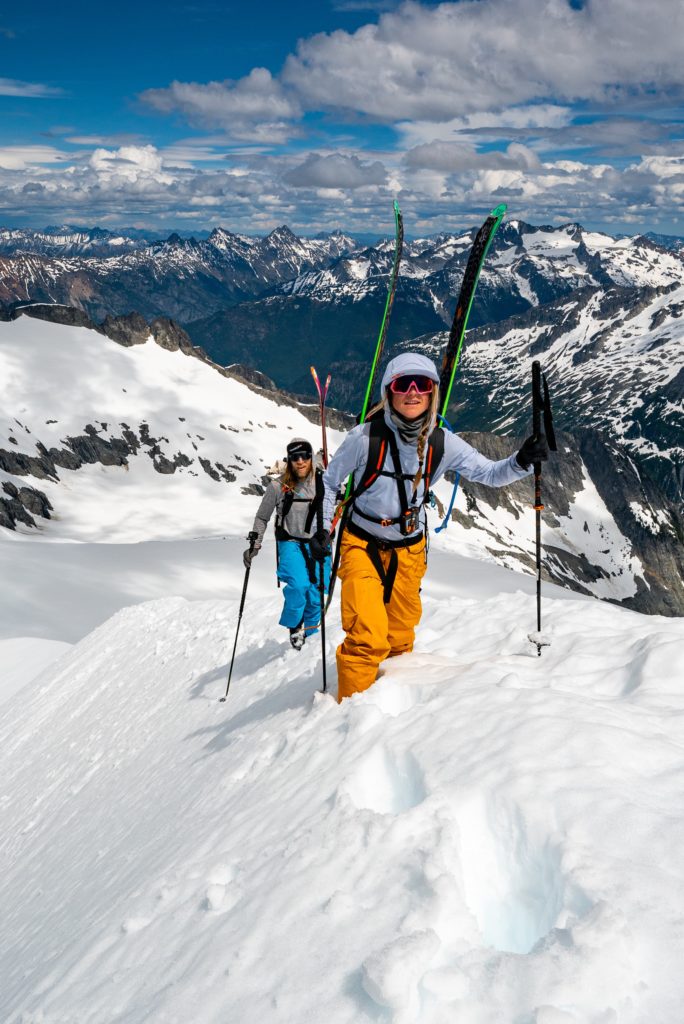
In one scene in the film, Townsend and Parker are even shot at. Salén, born and raised in Sweden, was shocked by the number of people carrying guns. When asked if people in Sweden are allowed firearms, Salén replied, “No, of course not. I mean people have them when they go hunting and stuff, but you never—I never—in my entire life have seen people carrying a gun on a walking path, or on the street. That to me is just a different world.”
This bike and ski adventure inspired Townsend to ask, “Why?” While to him this question remains partially unsolved, he concludes the film by stating, “Although there is a shallowness of purpose on these trips, there is a depth of meaning. That through great challenge you find a resiliency that bonds you to purpose.” Relating the physical and mental challenges of the bike-to-ski trip with the hardships in everyday life he has found, “Change is really, really hard. And sometimes we need the hard to slap us right across the face to incite that change.”
Townsend, Salén, and Parker had to contend with the voices in their own heads over how they felt about the trip and how others would view the movie in this political climate. In the end, Townsend says that he has had overwhelming support from the ski community, many of whom have been stuck at home, unable to travel to the mountains as they had hoped. Townsend reports that one viewer wrote him saying that he has “been really struggling and is scared and fearful, and the movie really showed him that you just gotta push through the pain and things will be better.” In what he describes as a surprising turn, Townsend has found that, for many viewers, The Mountain Why “gave them hope.”
Parker explains that she has come out of this adventure with a renewed attention to privilege. “I used to say, ‘I do what I do because I believe that if you see it you can believe it,’ and so for all these women coming up, if they see a strong woman in the mountains pursuing their dreams, they can believe that they can do that as well,” Parker says. However, she adds that the events over the summer, “flipped my world upside down.” She began to see the ski industry through a different lens, stating, “It is such a privilege to even have that connection to nature and to have the leisure time to go and pursue the stuff I pursue every day.” For her, The Mountain Why has really been about learning and relearning. She states, “I’m still learning, and I’ll always be learning but with a much larger scope on that privilege that we have.”


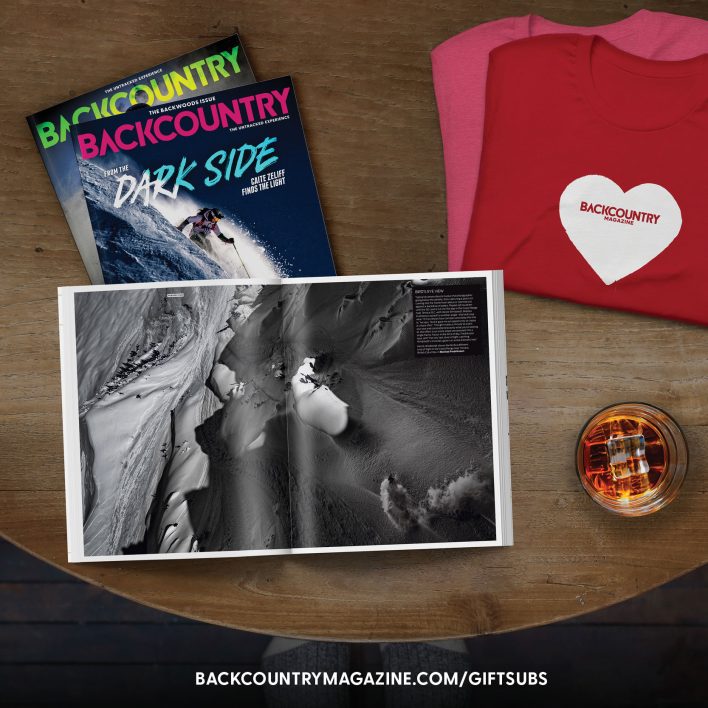




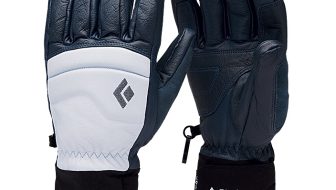
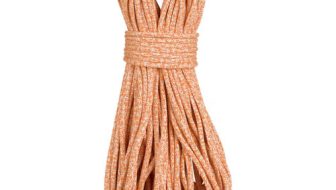

Related posts: